The Major and the Minor (1942) Online
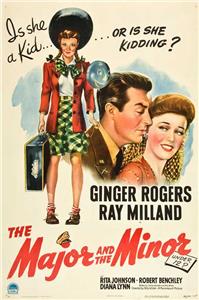
New York working girl Susan Applegate is desperate to go home to Iowa but does not have the railway fare so she disguises herself as a child to ride half fare. Enroute she meets Philip Kirby, an Army major teaching at a military school.
| Cast overview, first billed only: | |||
| Ginger Rogers | - | Susan Applegate | |
| Ray Milland | - | Major Philip Kirby | |
| Rita Johnson | - | Pamela Hill | |
| Robert Benchley | - | Albert Osborne | |
| Diana Lynn | - | Lucy Hill | |
| Edward Fielding | - | Colonel Oliver Slater Hill | |
| Frankie Thomas | - | Cadet Osborne | |
| Raymond Roe | - | Cadet Anthony Wigton Jr. | |
| Charles Smith | - | Cadet Korner | |
| Larry Nunn | - | Cadet Babcock | |
| Billy Dawson | - | Cadet Miller | |
| Lela E. Rogers | - | Mrs. Applegate (as Lela Rogers) | |
| Aldrich Bowker | - | Reverend Doyle | |
| Boyd Irwin | - | Major Griscom | |
| Byron Shores | - | Captain Durand |
The role was very close to Ginger Rogers' heart. When she was touring America with her vaudeville act and chauffeured by her mother, Lela E. Rogers, they could not afford to pay the full fare. Ginger had to pretend to be younger by rolling her stockings down and holding her old dolly to look like a young child in order to get a cheaper fare.
Billy Wilder was driving home from the studio one evening and pulled up at a red light next to Ray Milland. Impulsively, he called out, "I'm doing a picture. Would you like to be in it?," and the actor responded, "Sure." Wilder sent him the script, which Milland liked.
It was decided to include scenes of Susan's (Ginger Rogers) mother. Spring Byington was the first choice but was appearing in another film. Rogers suggested her real mother Lela E. Rogers, who got the role.
Billy Wilder's directorial debut in the U.S.
When 'Susu' is asked by the two train conductors to prove she's of 'Swedish stock' by saying something 'Swedish,' she replies; 'I want to be alone,' quoting the famous line spoken by Greta Garbo (who was originally from Sweden) in Grand Hotel (1932), which she parodied in her appearance in Ninotchka (1939), of which Billy Wilder was one of the screenwriters.
Diana Lynn appeared as Lucy, the science-obsessed teenage sister of Pamela. Thirteen years later, Lynn starred in that film's remake, You're Never Too Young (1955), this time as Nancy Collins, a female version of the role originally played by Ray Milland.
The film parodies Veronica Lake's hair style. Ms. Lake only became 'Veronica Lake' about 2 years earlier.
As a neophyte director, Billy Wilder heavily relied on editor Doane Harrison for guidance. Harrison had edited Hold Back the Dawn (1941), which Charles Brackett and Wilder had written. Unusually for an editor, Harrison was on the set for filming as well as working in the cutting room. Wilder later said, "I worked with a very good cutter, Doane Harrison, from whom I learned a great deal. He was much more of a help to me than the cameraman. When I became a director from a writer my technical knowledge was very meagre." Harrison taught him how to "cut in the camera," a form of spontaneous editing that results in a minimal amount of film being shot and eliminates the possibility of studio heads later adding footage the director deemed unnecessary. In later years, Wilder commented, "When I finish a film, there is nothing on the cutting room floor but chewing gum wrappers and tears." Wilder's and Harrison's unusually close and important collaboration continued for every subsequent film directed by Wilder through The Fortune Cookie (1966).
Principal photography was completed quickly and efficiently. Ginger Rogers later recalled, "We had a lot of fun making the picture. It was that kind of story. And even though it was his first film, from day one I saw that Billy knew what to do. He was very sure of himself. He had perfect confidence . . . I've never been sorry I made the film. The Major and the Minor really holds up. It's as good now as it was then."
This was Ginger Rogers first picture for Paramount in nine years.
Dickie Jones and Billy Cook were cast in the same role, but both deferred due to illness.
In the train station scene, a young girl shows her mother a magazine at the newsstand entitled "Why I Hate Women: By Charles Boyer." Boyer had starred in Hold Back the Dawn (1941) which had been co-written by Billy Wilder and Charles Brackett.
Billy Wilder and Charles Brackett wrote the role of Philip Kirby with Cary Grant in mind.
Ginger Rogers recently had won the 1940 Academy Award for Best Actress for Kitty Foyle (1940) and now was in a position to select her own director. Agent Leland Hayward represented both Rogers and Billy Wilder, who asked him to intercede with her on his behalf, and Charles Brackett also urged her to meet the neophyte director. She agreed, and she and the screenwriters met during the filming of Roxie Hart (1942). They pitched the movie during lunch at an Italian restaurant, and Rogers later recalled Wilder "was charming, a European gentleman . . . I've always been a good judge of character. decided then and there that both of us would get along and that Wilder had the qualities to become a good director . . . felt he would be strong, and that Wilder would listen. Wilder certainly understood how to pay attention to a woman." What also appealed to Rogers was the basic concept of the film. As a younger woman, she had pretended to be eligible for a child's fare when traveling by train with her cash-strapped mother on more than one occasion, so she easily identified with the plot and agreed to make the film.
Both Tom McGuire (News Vender) and Guy Wilkerson (Farmer Truck Driver) are in studio records for their roles in this film, but they did not appear in the print. Also, Billy Cook and Dickie Jones (Cadets) were scheduled to appear, but both were replaced due to illness.
"Lux Radio Theater" broadcast a 60 minute radio adaptation of the movie on May 31, 1943 with Ginger Rogers and Ray Milland reprising their film roles. It's episode 323 on some lists.
One of over 700 Paramount Productions, filmed between 1929 and 1949, which were sold to MCA/Universal in 1958 for television distribution, and have been owned and controlled by Universal ever since. Its initial television broadcast took place in Chicago Sunday 11 January 1959 on WBBM (Channel 2), and it soon became a popular local favorite once it was aired in St. Louis 21 March 1959 on KMOX (Channel 4), in Seattle 27 March 1959 on KIRO (Channel 7), in Milwaukee 16 April 1959 on WITI (Channel 6), in Grand Rapids 22 September 1959 on WOOD (Channel 8), in Minneapolis 22 October 1959 on WTCN (Channel 11), in Detroit 24 October 1959 on WJBK (Channel 2), in Phoenix 8 November 1959 on KVAR (Channel 12), in Asheville 24 November 1959 on WLOS (Channel 13), in Johnstown 8 December 1959 on WJAC (Channel 6) and in New York City 29 January 1960 on WCBS (Channel 2) . It was released on DVD 22 April 2008 as part of Universal's Cinema Classics series, and since that time has also enjoyed occasional airings on Turner Classic Movies.
Actress Dorothy Comingore was originally assigned in the Pamela Hill role, before Rita Johnson took over.
When Susan Applegate leaves from New York's Grand Central Terminal, the train pulled by a streamlined steam locomotive, designed by Raymond Loewy, for the Pennsylvania Railroad, is in fact shown leaving from Chicago. The New York train would have been lead by an electric engine, changing to a steam locomotive in Croton-Harmon, NY, and headed toward Chicago.
Hillary Brooke tested for a role.
Remade as the 1955 Dean Martin/Jerry Lewis comedy You're Never Too Young, with Lewis playing a male version of Ginger Rogers' character and Diana Lynn playing a female equivalent of Ray Milland's character.
"Theater Guild on the Air" broadcast a 60 minute radio adaptation of the movie on October 14, 1951 with Ray Milland reprising his film role.
Play "Connie Goes Home" opened at 49th Street Theatre in New York City on 6 September 1923 and closed later that month after 20 performances. The leading roles were played by Berton Churchill and Sylvia Field.
"The Screen Guild Theater" broadcast a 30 minute radio adaptation of the movie on September 6, 1943 with Diana Lynn reprising her film role.

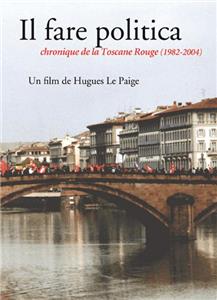
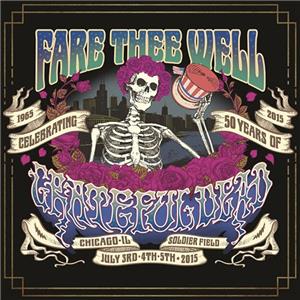

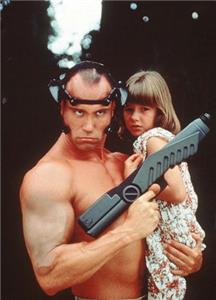
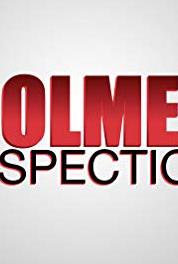
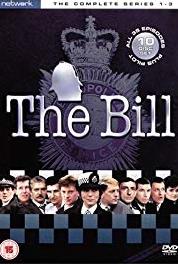
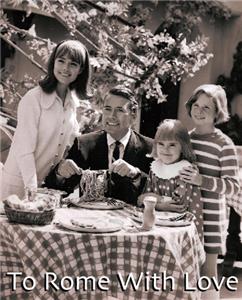

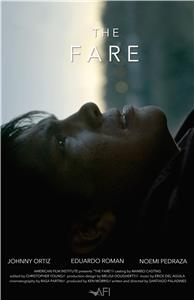
User reviews